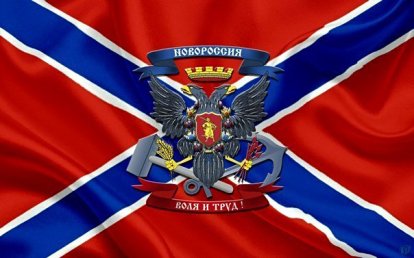 By: Eduard Popov – translated by Jafe Arnold
By: Eduard Popov – translated by Jafe Arnold

The Center for Syncretic Studies is honored to present our Russian colleague, Dr. Eduard Popov’s recent article featured in the journal Post-Soviet States: 25 Years of Independent Development published under the editorship of the famous expert on the South Caucasus and Doctor of Historical Sciences, Alexander Krylov (Moscow) from the Institute of World Economy and International Relations of the Russian Academy of Sciences. We thank Dr. Krylov for generously allowing us the opportunity to translate and publish this article by Popov, supplemented and updated specifically for the Center for Syncretic Studies and Fort Russ. This article is based on the findings of expert and sociological surveys conducted by the author in the Donetsk and Lugansk People’s Republics in 2015-2016 mainly among the military, political, and business elites of both republics, as well as among trade union members.

************************************************************************************
Russian Spring: The Socio-Political Dynamics of the Donbass Independence Movement
 he rise of the protest movement in Donbass (and other regions of historical Novorossiya) which resulted in the proclamation of the People’s Republics, was a reaction to the coup d’etat in Kiev and aggressive Russophobic policies. It is no accident that the first legislative step of the new Ukrainian authorities was abolishing the language law, ratified in 2003 by the Verkhovna Rada in line with the European Charter for Regional or Minority Languages, which effectively pushed the Russian language out of the educational and cultural-information space of Ukraine. However, the popular movement in Donbass at the end of winter and spring 2014 also had deeper motives. The proclamation of the people’s republics of Donbass was a logical reaction to the dismantling of Ukrainian statehood as it had been formed in the framework of the Ukrainian Soviet Socialist Republic. The new Ukrainian authorities violated the tacit social contract of loyalty to the existing state in exchange for a guaranteed minimum of cultural-linguistic rights for the regions of the “South-East” (historical Novorossiya). Continue reading
he rise of the protest movement in Donbass (and other regions of historical Novorossiya) which resulted in the proclamation of the People’s Republics, was a reaction to the coup d’etat in Kiev and aggressive Russophobic policies. It is no accident that the first legislative step of the new Ukrainian authorities was abolishing the language law, ratified in 2003 by the Verkhovna Rada in line with the European Charter for Regional or Minority Languages, which effectively pushed the Russian language out of the educational and cultural-information space of Ukraine. However, the popular movement in Donbass at the end of winter and spring 2014 also had deeper motives. The proclamation of the people’s republics of Donbass was a logical reaction to the dismantling of Ukrainian statehood as it had been formed in the framework of the Ukrainian Soviet Socialist Republic. The new Ukrainian authorities violated the tacit social contract of loyalty to the existing state in exchange for a guaranteed minimum of cultural-linguistic rights for the regions of the “South-East” (historical Novorossiya). Continue reading



 y including the processes and event-related phenomenon “Russian Spring,” “war,” and “statecraft” in the title of this article, I am by no means implying any kind of intellectual provocation or attempting to realize a political order. On the contrary, the intended position here can be associated with the existence of millions of people who have in one way or another engaged (during wartime) in the creation of a completely distinct region, a will and fate of more than just one century tied to the fate of the Russian world.
y including the processes and event-related phenomenon “Russian Spring,” “war,” and “statecraft” in the title of this article, I am by no means implying any kind of intellectual provocation or attempting to realize a political order. On the contrary, the intended position here can be associated with the existence of millions of people who have in one way or another engaged (during wartime) in the creation of a completely distinct region, a will and fate of more than just one century tied to the fate of the Russian world. 
